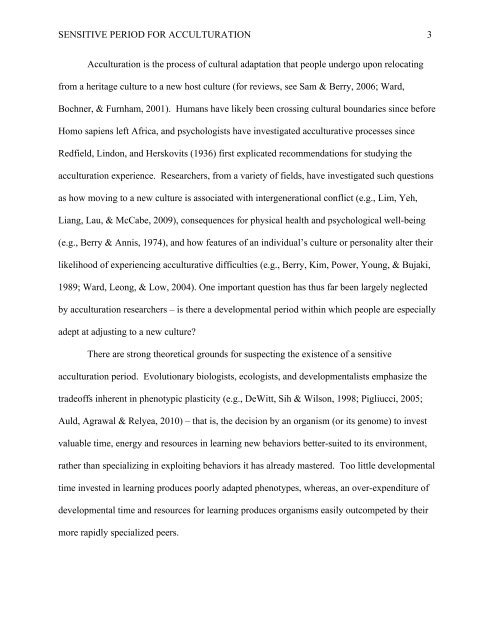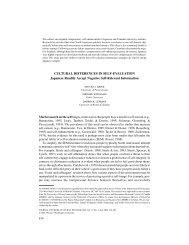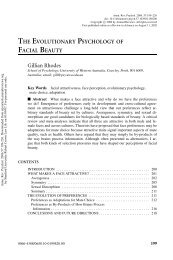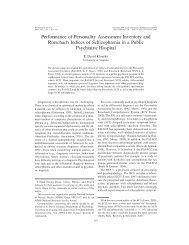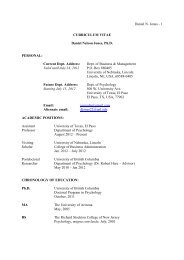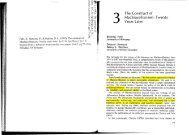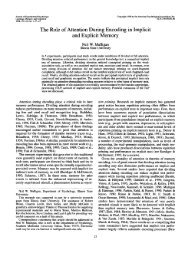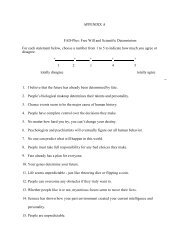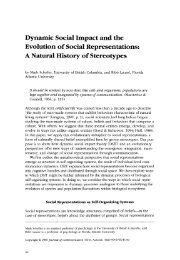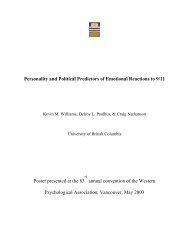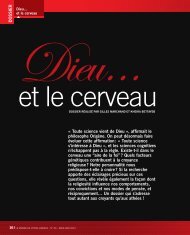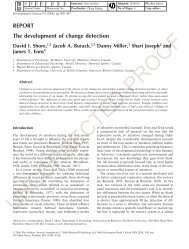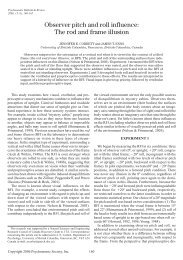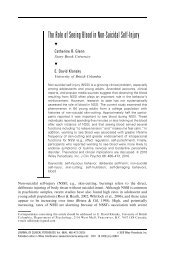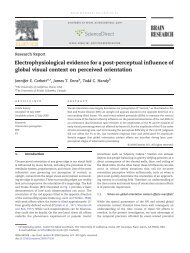Running Head: Sensitive Period for Acculturation 1 Evidence for a ...
Running Head: Sensitive Period for Acculturation 1 Evidence for a ...
Running Head: Sensitive Period for Acculturation 1 Evidence for a ...
You also want an ePaper? Increase the reach of your titles
YUMPU automatically turns print PDFs into web optimized ePapers that Google loves.
SENSITIVE PERIOD FOR ACCULTURATION 3<strong>Acculturation</strong> is the process of cultural adaptation that people undergo upon relocatingfrom a heritage culture to a new host culture (<strong>for</strong> reviews, see Sam & Berry, 2006; Ward,Bochner, & Furnham, 2001). Humans have likely been crossing cultural boundaries since be<strong>for</strong>eHomo sapiens left Africa, and psychologists have investigated acculturative processes sinceRedfield, Lindon, and Herskovits (1936) first explicated recommendations <strong>for</strong> studying theacculturation experience. Researchers, from a variety of fields, have investigated such questionsas how moving to a new culture is associated with intergenerational conflict (e.g., Lim, Yeh,Liang, Lau, & McCabe, 2009), consequences <strong>for</strong> physical health and psychological well-being(e.g., Berry & Annis, 1974), and how features of an individual’s culture or personality alter theirlikelihood of experiencing acculturative difficulties (e.g., Berry, Kim, Power, Young, & Bujaki,1989; Ward, Leong, & Low, 2004). One important question has thus far been largely neglectedby acculturation researchers – is there a developmental period within which people are especiallyadept at adjusting to a new culture?There are strong theoretical grounds <strong>for</strong> suspecting the existence of a sensitiveacculturation period. Evolutionary biologists, ecologists, and developmentalists emphasize thetradeoffs inherent in phenotypic plasticity (e.g., DeWitt, Sih & Wilson, 1998; Pigliucci, 2005;Auld, Agrawal & Relyea, 2010) – that is, the decision by an organism (or its genome) to investvaluable time, energy and resources in learning new behaviors better-suited to its environment,rather than specializing in exploiting behaviors it has already mastered. Too little developmentaltime invested in learning produces poorly adapted phenotypes, whereas, an over-expenditure ofdevelopmental time and resources <strong>for</strong> learning produces organisms easily outcompeted by theirmore rapidly specialized peers.


